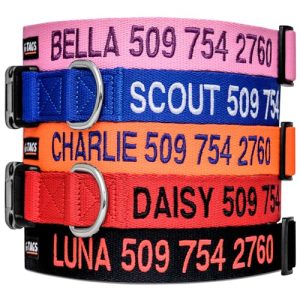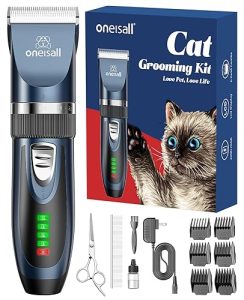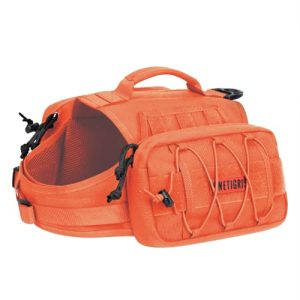If you have a 6-month-old dog, you’re probably wondering what kind of food is best right now. Can your puppy start eating adult dog food, or should you stick with puppy formulas a little longer?
Choosing the right food affects your dog’s growth, health, and energy. You’ll discover the signs that show when it’s time to switch, what to watch out for, and how to make the change smooth and safe. Keep reading to make sure your furry friend gets the nutrition they need to thrive.

Credit: www.thinkjinx.com
Growth Needs Of A 6 Month Old Dog
At six months, a dog is growing fast and needs proper food. Their diet supports bones, muscles, and energy.
Feeding the right food helps keep them healthy during this active stage of life.
Nutritional Requirements
A 6 month old dog needs a balanced diet with proteins, fats, and vitamins. These nutrients help build strong muscles and keep the coat shiny.
- High protein for muscle growth
- Essential fatty acids for brain and skin health
- Calcium and phosphorus for bone development
- Vitamins A, D, and E for overall health
- Carbohydrates for energy
Energy Demands
Growing puppies need more energy than adult dogs. Their food must provide enough calories for daily activities and growth.
| Age | Daily Calorie Needs |
| 6 Month Old Puppy | About 1,200 to 1,600 calories |
| Adult Dog (Medium Size) | About 900 to 1,400 calories |
Developmental Milestones
At six months, dogs reach key milestones. Their bones harden, and muscles grow stronger. They also become more active and playful.
- Teeth are fully grown and strong
- Increased coordination and balance
- Rapid weight and height gain
- More social and curious behavior
Differences Between Puppy And Adult Food
Puppy food and adult dog food have different recipes. These differences help dogs grow and stay healthy.
A 6 month old dog is growing fast. Feeding the right food is very important at this stage.
Calorie Content
Puppy food has more calories than adult food. Puppies need extra energy to grow and play.
Adult dogs need fewer calories to keep a healthy weight. Too many calories can cause weight gain.
- Puppy food: Higher calories for growth
- Adult food: Lower calories for maintenance
Protein Levels
Puppy food contains more protein than adult food. Protein helps build muscles and tissues in puppies.
Adult dog food has less protein because adult dogs need less for body repair and energy.
- Puppy food: High protein for growth
- Adult food: Moderate protein for maintenance
Vitamin And Mineral Balance
Puppy food has more vitamins and minerals. These nutrients support bone growth and brain development.
Adult food has vitamins and minerals for keeping bones and organs healthy but in lower amounts.
| Type | Vitamin & Mineral Needs |
|---|---|
| Puppy Food | Higher calcium, phosphorus, DHA, and other nutrients |
| Adult Food | Balanced levels for maintenance, less calcium and phosphorus |
Risks Of Feeding Adult Food Early
Feeding a 6 month old dog adult food can cause health problems. Puppy food is made for growing dogs. Adult food may not meet their needs.
Giving adult food too soon can affect your dog’s growth and digestion. It is important to understand the risks before changing their diet.
Nutrient Deficiencies
Puppies need more nutrients than adult dogs. Adult food has fewer nutrients for growth. Feeding adult food early can cause missing vitamins and minerals.
Important nutrients like protein, calcium, and DHA are lower in adult food. These help build strong bones and healthy brains in puppies.
- Lower protein can slow muscle growth
- Less calcium may weaken bones
- Missing DHA affects brain development
Digestive Issues
Puppy stomachs are sensitive and need special food. Adult food can upset their digestion. This may cause diarrhea or vomiting.
The change in food types can be hard on puppies. Their digestive system is still developing and may not handle adult food well.
- Adult food has less fiber for digestion
- Different fat levels may cause stomach upset
- Sudden diet changes increase risk of illness
Growth Problems
Proper growth needs the right food. Feeding adult food too soon can slow your puppy’s growth. This may lead to weak bones and joints.
Adult food lacks the nutrients needed for healthy growth. Puppies need extra support to reach full size and strength.
- Inadequate calories reduce energy for growth
- Poor nutrient balance affects bone development
- Can lead to long-term joint problems

Credit: www.pethealthclub.com
When To Transition To Adult Food
Knowing when to switch your dog from puppy food to adult food is important. The right time helps your dog grow healthy and strong.
Many dog owners ask if a 6 month old dog can eat adult food. The answer depends on several factors about your dog.
Signs Of Readiness
Your dog shows signs when it is ready for adult food. Watch for these changes to know the right time.
- Growth slows down and your dog seems less energetic.
- Teeth are fully grown and healthy.
- Weight gain stabilizes and your dog looks less puppy-like.
These signs mean your dog’s body needs different nutrients than before.
Breed And Size Considerations
Small and large breed dogs grow at different rates. This affects when to change their food.
- Small breeds often mature faster and can switch around 6 months.
- Large breeds grow for a longer time and may need puppy food until 12-18 months.
- Medium breeds usually transition between 9 and 12 months.
Knowing your dog’s breed helps pick the right food timing.
Veterinary Recommendations
Your vet can guide you on when to switch to adult food. They check your dog’s health and growth.
- Regular check-ups show if your dog is growing well.
- Your vet may suggest blood tests or weight checks.
- They can recommend special diets for health needs.
Follow your vet’s advice for the best food transition plan.
How To Switch Dog Food Safely
Changing your dog’s food needs care. A sudden switch can cause stomach upset. Follow safe steps to help your dog adjust well.
This guide explains how to change food gradually, watch for reactions, and adjust portions properly.
Gradual Transition Steps
Start by mixing a small amount of adult food with puppy food. Increase adult food slowly over several days. This helps your dog’s stomach get used to the new food.
- Day 1-2: Mix 25% adult food with 75% puppy food.
- Day 3-4: Mix 50% adult food and 50% puppy food.
- Day 5-6: Mix 75% adult food and 25% puppy food.
- Day 7: Feed 100% adult food.
Monitoring Reactions
Watch your dog closely for any signs of discomfort. Changes in stool, vomiting, or loss of appetite may mean the food is not agreeing with your dog.
| Reaction | What to Do |
| Loose stool | Slow down transition speed |
| Vomiting | Stop new food and consult vet |
| Loss of appetite | Try mixing food with broth |
Adjusting Portions
Adult dogs need different food amounts than puppies. Adjust portions as your dog grows to keep it healthy and active.
Use this simple table to adjust daily food portions based on your dog’s weight:
| Dog Weight | Daily Food Amount |
|---|---|
| 10-20 lbs | 1 to 1.5 cups |
| 21-40 lbs | 1.5 to 2.5 cups |
| 41-60 lbs | 2.5 to 3.5 cups |
| Over 60 lbs | 3.5+ cups |
Alternative Feeding Options
Feeding a 6-month-old dog requires careful consideration. It’s important to choose the right diet for their growth and health.
Here, we explore various feeding options that can be suitable for a young dog. Each option has its benefits.
Senior Puppy Formulas
Senior puppy formulas are tailored to meet the needs of young dogs. They provide balanced nutrition for growth.
| Brand | Features |
| Brand A | Rich in proteins |
| Brand B | Added vitamins |
| Brand C | Probiotics included |
Homemade Diets
Homemade diets allow control over ingredients. This option can be tailored to a dog’s specific needs.
- Use lean meats like chicken or turkey
- Add vegetables such as carrots and peas
- Include grains like rice or oats
Supplements For Growth
Supplements can support a dog’s growth. They fill nutritional gaps in their diet.
Common Feeding Mistakes To Avoid
Feeding a 6-month-old dog adult food can lead to issues. It’s important to know what mistakes to avoid.
Puppies need specific nutrients for their growth. Adult food may not meet these needs.
Overfeeding
Giving too much food can cause weight issues in puppies. Their growth may be affected.
It’s better to follow feeding guidelines on puppy food packages. This ensures your puppy gets the right amount.
Ignoring Nutritional Labels
Labels show important information about dog food. Ignoring them can lead to improper feeding.
Puppies need food with high protein and fat. Check labels to ensure their diet is balanced.
- Look for labels with protein above 22%
- Ensure fat content is around 8%
- Check for added vitamins and minerals
Skipping Vet Consultations
Vets know the best diet for your puppy. Skipping consultations can lead to health problems.
Regular vet visits help monitor your puppy’s growth. They can advise when to switch to adult food.

Credit: www.purina.com
Frequently Asked Questions
Can A 6 Month Old Dog Eat Adult Dog Food?
Yes, a 6 month old dog can start eating adult dog food. Transition gradually to avoid digestive upset. Consult your vet for the best timing and food type suited to your puppy’s breed and size.
When Should I Switch My Puppy To Adult Dog Food?
Most puppies switch to adult food between 6 to 12 months. Large breeds may need more time. Always follow your vet’s advice to ensure balanced nutrition during growth.
Is Adult Dog Food Nutritious For 6 Month Puppies?
Adult dog food is formulated for maintenance, not growth. It may lack essential nutrients puppies need. Choose puppy-specific food until your vet approves switching to adult formula.
How To Transition A 6 Month Old Dog To Adult Food?
Mix increasing amounts of adult food with puppy food over 7-10 days. This gradual shift helps prevent stomach upset. Monitor your dog’s digestion and energy levels during the change.
Conclusion
Feeding a 6-month-old dog adult food is usually not the best choice. Puppies need special nutrients to grow strong and healthy. Adult food may lack some important vitamins and minerals for their development. Gradually switching to adult food is better around one year of age.
Always watch your dog’s weight and energy levels during changes. Consult your vet for advice on the best diet for your dog. Healthy food helps your dog stay happy and active. Keep your puppy’s needs in mind for a long, healthy life.

Emily Barker is the founder of ChillDogLife.com, a space dedicated to helping pup parents discover the best dog products, lifestyle tips, and cozy ideas for happier homes.
A lifelong dog lover, Emily combines her passion for pets with a knack for research to share trusted recommendations on everything from toys and furniture to health and everyday care.
Her goal is simple: to make life easier, stylish, and more joyful for dogs and the people who love them.







